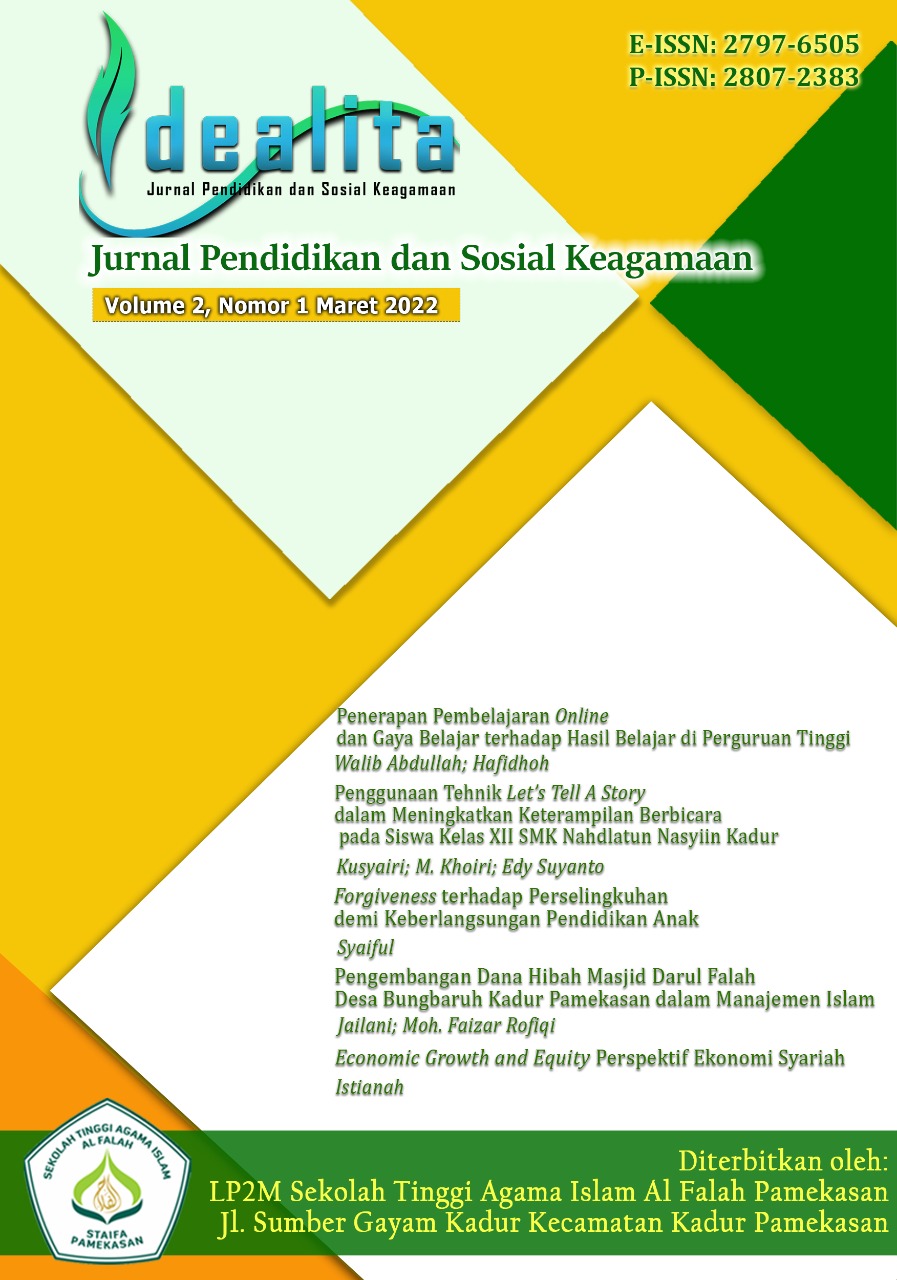PENERAPAN PEMBELAJARAN ONLINE DAN GAYA BELAJAR TERHADAP HASIL BELAJAR DI PERGURUAN TINGGI
DOI:
https://doi.org/10.62525/10.62525/idealita.2022.v2.i1.1-15Abstract
The purpose of this study is to determine the differences in student learning outcomes using online learning strategies with face-to-face learning, and to determine the learning outcomes of students who have different learning styles and to determine the interaction of learning strategies and learning styles on learning outcomes. This study used a quasi-experimental research design (quasi-experimental). While the experimental design used in this study is the nonequivalent control group design. This study uses a 2 x 2 factorial design involving two groups in this case the researcher uses 2 classes. The first class is as an experimental class, this group learns using blended learning, and the second class is face-to-face learning as a control class, this group uses conventional learning to learn. The disaggregating factor is the moderating variable of learning style (active learning style and reflective learning style) while the dependent variable is understanding the concept. This study uses a 2-way Analysis of Variance (Anova) to test the hypothesis, in the form of the Univariate Test of Between- Subject Effects. The results showed that there were differences in results between students who applied online learning and face-to-face learning. The second is that there are differences in learning outcomes between students who have different learning styles. Third, there is an interaction between online and face-to-face learning and learning styles with learning outcomesDownloads
Published
2022-06-08 — Updated on 2022-03-23
Versions
- 2022-03-23 (2)
- 2022-06-08 (1)
How to Cite
abdullah, walib ., & Hafidhoh, H. (2022). PENERAPAN PEMBELAJARAN ONLINE DAN GAYA BELAJAR TERHADAP HASIL BELAJAR DI PERGURUAN TINGGI. IDEALITA: Jurnal Pendidikan Dan Sosial Keagamaan, 2(1), 1–15. https://doi.org/10.62525/10.62525/idealita.2022.v2.i1.1-15 (Original work published June 8, 2022)
Issue
Section
Articles




